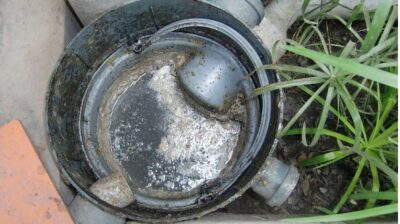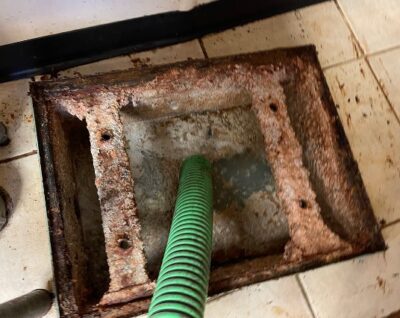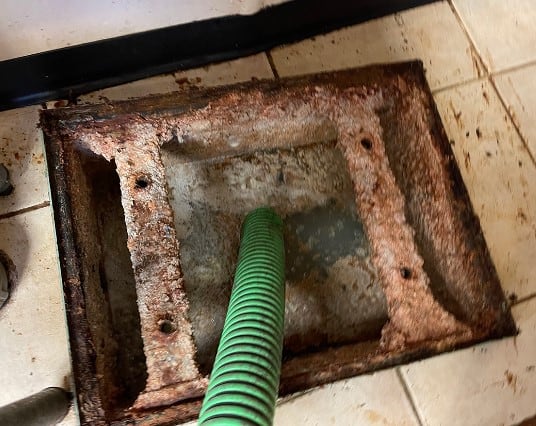Are you running a commercial kitchen without a grease trap? Read on to learn why grease traps are invaluable in commercial kitchens.
Preventing grease build-up in plumbing systems
Commercial kitchens generate a substantial amount of grease, fats and oils during daily operations. Without a grease trap, these substances can enter the plumbing system, leading to gradual build-up and clogs. A grease trap acts as a barrier, intercepting these materials before they enter the drainage system. This not only helps prevent blockages but also ensures the smooth flow of water through the pipes, maintaining the integrity of your plumbing infrastructure.

If you are unlucky enough to have a grease build-up in your drainage system, you should deal with it promptly. One popular method for clearing grease clogs is drain jetting, which uses high-pressure streams of water to dislodge stubborn clogs. Once drain jetting has been carried out, you should consider installing a grease trap right away to prevent future blockages.
Environmental compliance and sustainability
Beyond the immediate benefits to your kitchen’s functionality, installing a grease trap aligns with environmental regulations and promotes sustainability. According to the Environment Agency, not only can grease and oil enter wastewater systems and cause blockages but also waste can end up on beaches and rivers, which can harm local ecosystems. Grease traps not only prevent these substances from reaching water bodies but also enable responsible disposal. By incorporating a grease trap, your kitchen demonstrates a commitment to environmental responsibility and compliance with regulations.

A grease trap is a fundamental component for any commercial kitchen seeking to maintain efficient operations and environmental responsibility. By preventing grease build-up in plumbing systems and promoting sustainability, a grease trap contributes to a well-functioning kitchen and aligns with the broader goals of responsible waste management.

